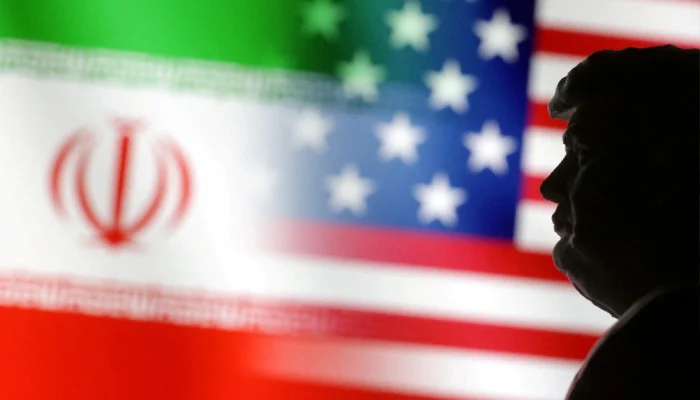In a surprising announcement, US President Donald Trump stated on Monday that the United States and Iran were on the verge of commencing direct discussions regarding Tehran’s nuclear program. However, Iran’s foreign minister clarified that the upcoming talks in Oman would be indirect.
Adding to the complexities of potential negotiations between the long-standing adversaries, Trump issued a stern warning, stating that Iran would face “great danger” if the talks proved unsuccessful.
Iran had recently resisted Trump’s demands for direct negotiations on its nuclear activities or face military action, a stance it appeared to maintain on Monday.
“We’re having direct talks with Iran, and they’ve started. It’ll go on Saturday. We have a very big meeting, and we’ll see what can happen,” Trump informed reporters at the White House during a meeting with Israeli Prime Minister Benjamin Netanyahu.
Trump expressed his preference for a negotiated resolution, adding that Saturday’s discussions with Iran would be at a high level, though he provided no further details. He declined to disclose the location of the talks but suggested that an agreement was possible.
Iran’s Foreign Minister Abbas Araqchi communicated via X that indirect, high-level talks would take place in Oman, emphasizing, “It is as much an opportunity as it is a test. The ball is in America’s court.”
While the US and Iran engaged in indirect talks during former President Joe Biden’s administration with limited progress, the last known direct negotiations occurred under President Barack Obama, who championed the 2015 international nuclear agreement that Trump later withdrew from.
Trump’s warnings of potential military action against Iran had already heightened tensions across the Middle East, following open conflict in the region and a leadership change in Syria.
Trump, who has increased the US military presence in the region since assuming office in January, had previously stated his preference for a diplomatic solution to Iran’s nuclear program over armed conflict. On March 7th, he mentioned writing to Iran’s Supreme Leader Ayatollah Ali Khamenei to propose discussions. Iranian officials at the time asserted that Tehran would not be coerced into negotiations.
“Iran cannot have a nuclear weapon, and if the talks aren’t successful, I actually think it will be a very bad day for Iran,” Trump reiterated on Monday.
Direct talks would likely require the explicit approval of Ayatollah Ali Khamenei, who had stated in February that negotiations with the US were “not smart, wise, or honourable.”
Hours before Trump’s announcement, Iranian Foreign Ministry spokesperson Esmail Baghaei indicated that Iran was awaiting a US response to its proposal for indirect negotiations, describing it as a generous, responsible, and honourable offer.
Following Trump’s statement, a senior Iranian official, speaking anonymously to Reuters, clarified, “The talks will not be direct … It will be with Oman’s mediation.” Oman, known for its good relations with both the US and Iran, has historically served as a communication channel between the rival nations.
Iran’s Nournews, affiliated with the country’s top security body, characterized Trump’s statement about planned direct talks as part of a “psychological operation aimed at influencing domestic and international public opinion.”
A second anonymous Iranian official suggested over the weekend that there might be a roughly two-month window to reach an agreement, citing concerns that Israel, a long-time adversary of Iran, might initiate an attack if talks prolonged.
Israeli Prime Minister Benjamin Netanyahu, who has expressed limited support for US negotiations with Iran, stated that if diplomacy could prevent Tehran from ever acquiring nuclear weapons “in a full way, the way it was done in Libya, I think that would be a good thing.”
During his 2017-2021 term, Trump withdrew the US from the 2015 nuclear deal between Iran and world powers, which aimed to restrict Iran’s sensitive nuclear activities in exchange for sanctions relief. Trump also reimposed extensive US sanctions. Since then, Iran has exceeded the deal’s limitations on uranium enrichment.
Western powers accuse Iran of pursuing a covert agenda to develop nuclear weapons by enriching uranium to high levels, beyond what they deem necessary for a civilian nuclear energy program. Tehran maintains that its nuclear program is solely for peaceful energy purposes.
The White House National Security Council did not immediately respond to requests for further details.
The weakening of Syrian President Bashar al-Assad, another key ally of Iran, has further diminished the Islamic Republic’s regional influence.



